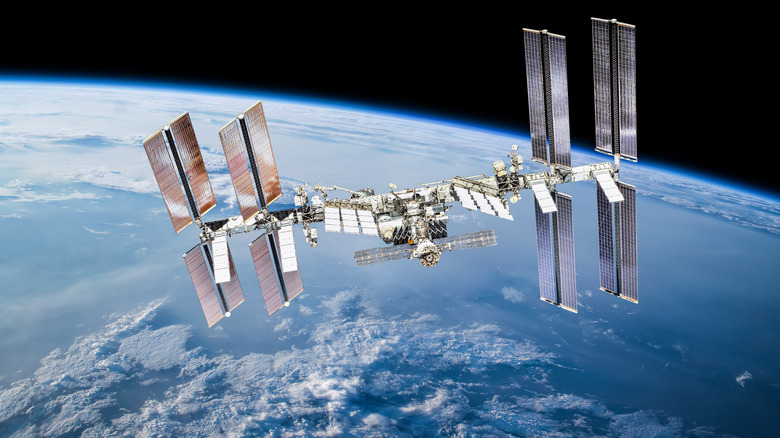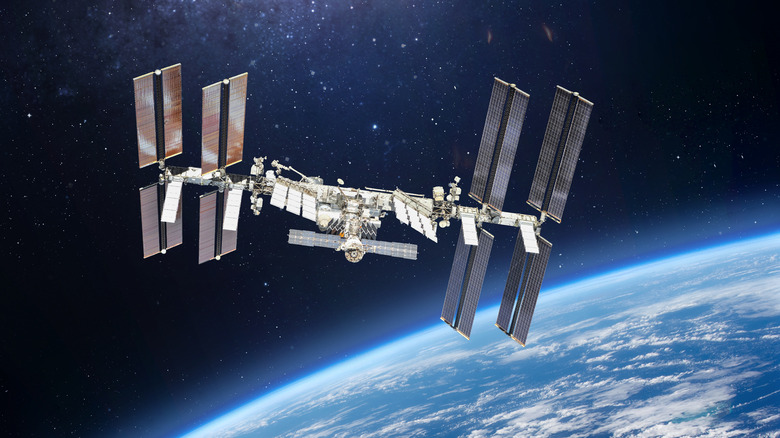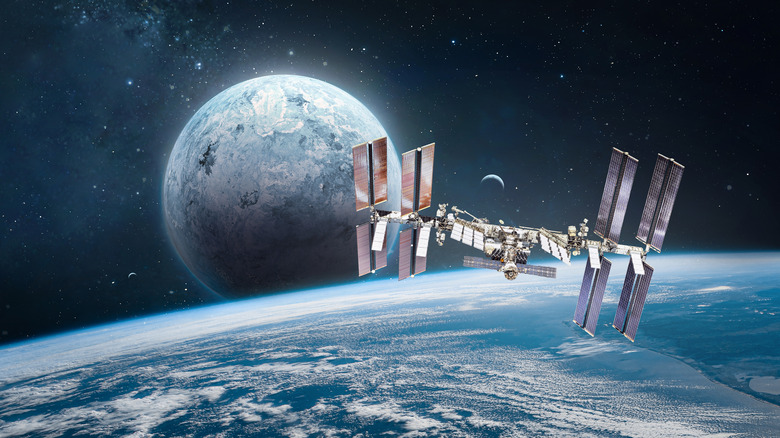What Russia Leaving The International Space Station Really Means
On July 26, 2022, according to CNN, Russia announced that it would no longer fund, support, or send astronauts to the International Space Station (depicted above). "The decision to leave this station after 2024 has been made," said Yury Borisov, the head of the Russian space agency, Roscosmos. In the meantime, Borisov said Russia will "fulfill all our obligations to our partners" in the remaining two years before the last Russians leave the craft for good.
In a way, the spacecraft, and more specifically, the international crews that have worked on it in the two or so decades since it's been in orbit, have been a testament to international cooperation, a putting aside of the differences within the five space agencies that manage it — NASA, Roscosmos, the Japanese Space Agency, the Canadian Space Agency, and the European Space Agency — in the name of space exploration and advancing the cause of science. In reality, however, the decision comes amid souring relations between the U.S. and Russia and may or may not have been informed by toxic U.S.-Russia relations. That, or the Russians are just trying to get ahead of the game since the spacecraft is due to be retired for good in 2031 (via NPR).
The International Space Station Has A Finite Life Span
In February 2022, NASA announced the decision to retire the International Space Station for good in 2031 (via NPR). There were, by and large, two reasons for this, one practical and one philosophical. From a practical standpoint, the ISS is a machine — its principal components were launched into space in 1998 — and machines have finite life spans. Already the craft is showing signs of age, including cracks and leaks. "That sort of stuff happens," said Mike Wall, a senior space writer for Space.com.
In a philosophical sense, however, the landscape of space exploration is changing. The days of government-funded space exploration may not necessarily be coming to an end, but private enterprise is playing a much bigger role. This private exploration will at once reduce costs for NASA, as well as allow the agency to focus on longer-term goals, such as manned missions to Mars. And it appears that a casualty of this new reality of space exploration is the ISS, which NASA intends to crash into the ocean once the final crew has left.
What Does This Decision Mean?
In the long term, Russia's decision to pull out of the ISS doesn't mean much since the craft was and is going to be retired and destroyed in or around 2031 (via CNN). Russia simply pulled out of the lease agreement, in a manner of speaking, a few years early. Further still, until recently, the only way to get astronauts to and from the spacecraft was via Russian rockets; those days are gone thanks to private space exploration now being able to deliver the astronauts. In the short term, however, everything may have been thrown into chaos, according to Axios. Writer Miriam Kramer, for example, notes that the spacecraft may not be able to stay open after Russia pulls out.
As of July 26, 2020, 10 people are aboard the ISS (via How Many People Are In Space Right Now), including three Russians — Oleg Artemyev, Denis Matveev, and Sergey Korsakov. It remains unclear when those three will be leaving and if any Russians will be sent back up there when the assignments of those astronauts end.


